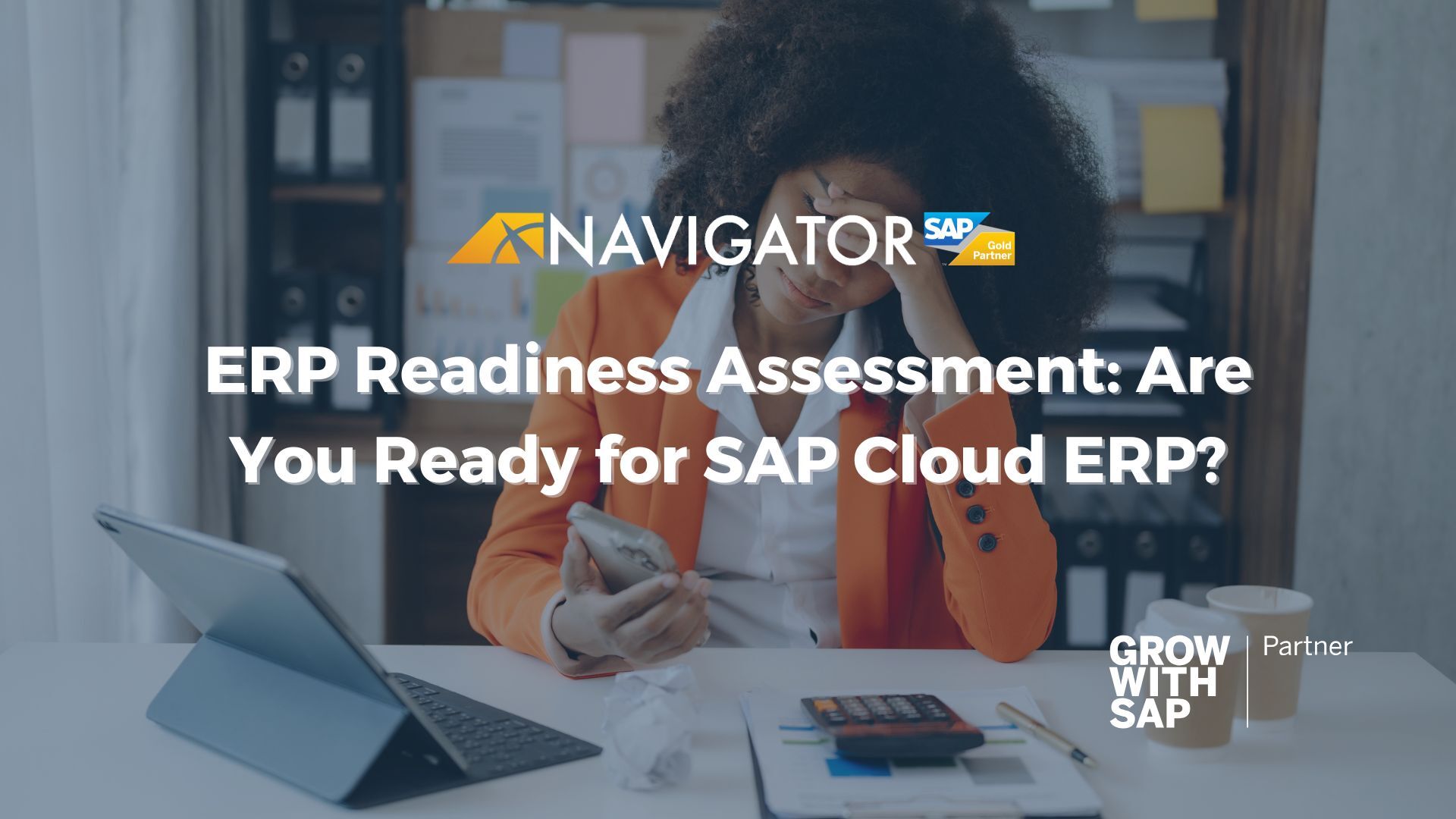
ERP Readiness Assessment: Are You Ready for SAP Cloud ERP?
Unless you work at a mom-and-pop business that has no plans for growth, eventually your organization will start thinking about adopting an enterprise resource planning solution (ERP).
All expanding businesses end up using an ERP at some point, because growing organizations require firm financial processes, defined workflows that lean on automation, backend systems that coordinate increased operational complexity, and both data management and analytics capabilities for effectively planning strategy.
Your business may or may not be at the point where it needs an ERP solution, however. Small businesses can lean for quite some time on QuickBooks and a patchwork of small-business software solutions. Startups can move fast and endure some measure of chaos and spreadsheet hell while they work on business development and profitability.
There will come a time, however, when ERP adoption becomes a meaningful question.
The exact moment your business is ready for ERP depends on your business and your growth plans. Pain points with your current processes often will play a role, as will organizational readiness and profitability. For while the operational and implementation costs of ERP have come down thanks to the cloud model, ERP remains at the pro level.

Understanding the Role of ERP
Enterprise resource planning solutions are end-to-end business systems that encompass all aspects of business operations. This includes financial management, sales, manufacturing, inventory, distribution, human resources, customer service, and other areas such as supply chain optimization.
The main value proposition of an ERP and why growing businesses inevitably migrate to it is data centrality and unified operations. ERP connects all parts of a business through a standard interface, and it helps different parts of a business coordinate and share data.
Almost equally important is what a unified system can do for automation, planning, and adaptability. With ERP, a business can automate most routine tasks and enforce standardized processes across an organization. It can help business leaders and department heads analyze operational and overall business trends in real-time, and modern ERP solutions can enable organizations to quickly expand and adapt to changing trends and technology.
Businesses doing the most with artificial intelligence right now, for instance, use their ERP solution for automatically collecting business data and exposing it to AI algorithms. They also automate and integrate AI with their backend processes for the creation of a more intelligent enterprise. This high-level AI use requires ERP.
Questions for Determining If You’re Ready for ERP
There’s no single question that shows when a business is ready to graduate to an ERP solution, but there are a series of questions that can paint a pretty good picture of when it is right to upgrade an organization’s backend systems.
Here are some of the key questions your organization should be asking when assessing your ERP readiness.
Current System Evaluation
- What system are you currently using for financials, inventory, and operations?
- Are your current systems integrated, or do they require manual data entry between departments?
- Do you experience frequent system crashes, slow performance, or outdated features?
Business Process Maturity
- Do you have clearly defined and documented business processes?
- Are your business processes standardized across all departments?
- Do you rely heavily on spreadsheets for financial reporting and decision-making?
Scalability & Growth
- Is your business growing rapidly or expanding into new markets?
- Do you have issues managing increased transaction volumes with your current system?
- Do you need multi-country, multi-currency, or multi-entity capabilities?
Data & Reporting
- Do you struggle to generate accurate, real-time reports?
- How long does it take to close your books at the end of the month?
- Do you need better data visibility for decision-making?
Compliance & Security
- Are you facing challenges meeting industry regulations (such as FDA, ISO or GDPR rules)?
- Do you require stronger cybersecurity and access controls?
- Do you need an audit trail for compliance purposes?
Change Management & Team Readiness
- Do your employees struggle to adopt new technologies?
- Have you allocated resources and leadership support for an ERP project?
- Are your teams open to change and digital transformation?
Get Help Understanding the Options and the Process
We’ve been helping businesses determine needs and assisting with ERP implementation for more than 30 years as an SAP Gold Partner. Having helped businesses roll out more than 500 ERP implementations over the years, we both deeply understand ERP and know the needs of businesses across various industries.
So if your business needs help assessing ERP readiness, or you have questions about the process or the various ERP options on the market today, contact one of our experienced ERP consultants by calling (801) 642-0123 or writing us at info@nbs-us.com.
You can also get a fuller assessment of your organization’s ERP readiness by downloading our ERP Evaluation Guide, a free workbook we’ve developed for evaluating your business needs and deciding if ERP is right for your organization today.

